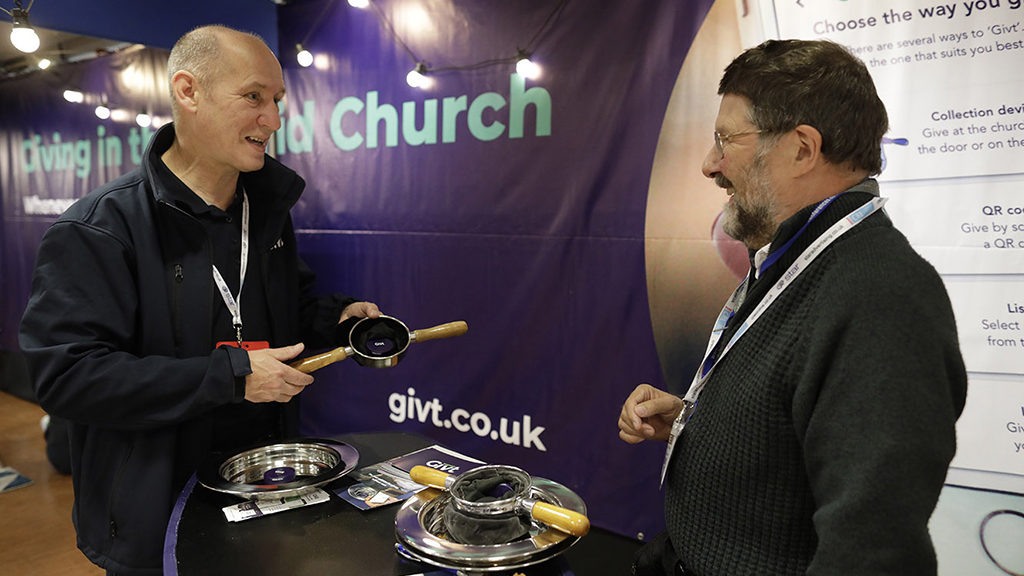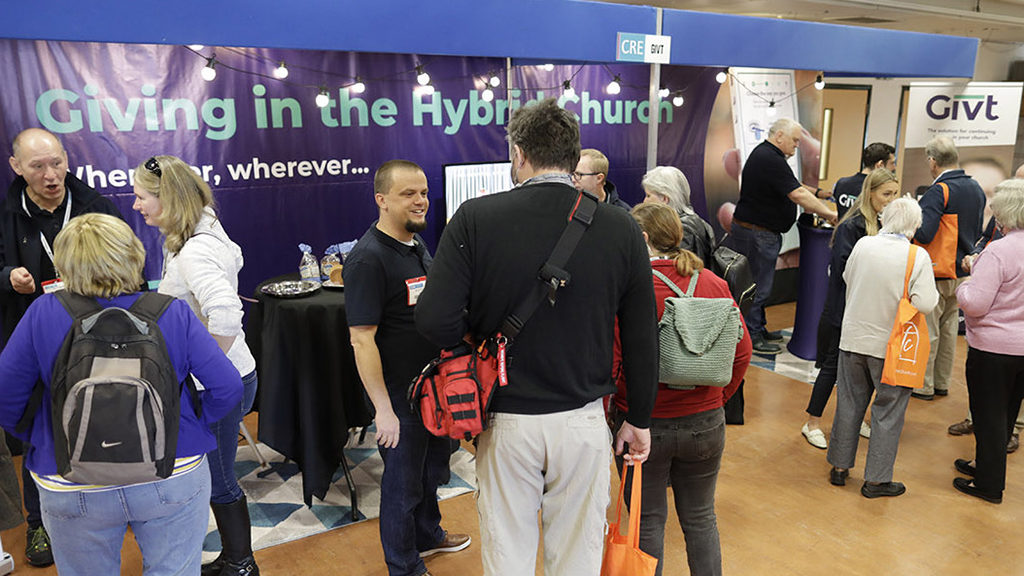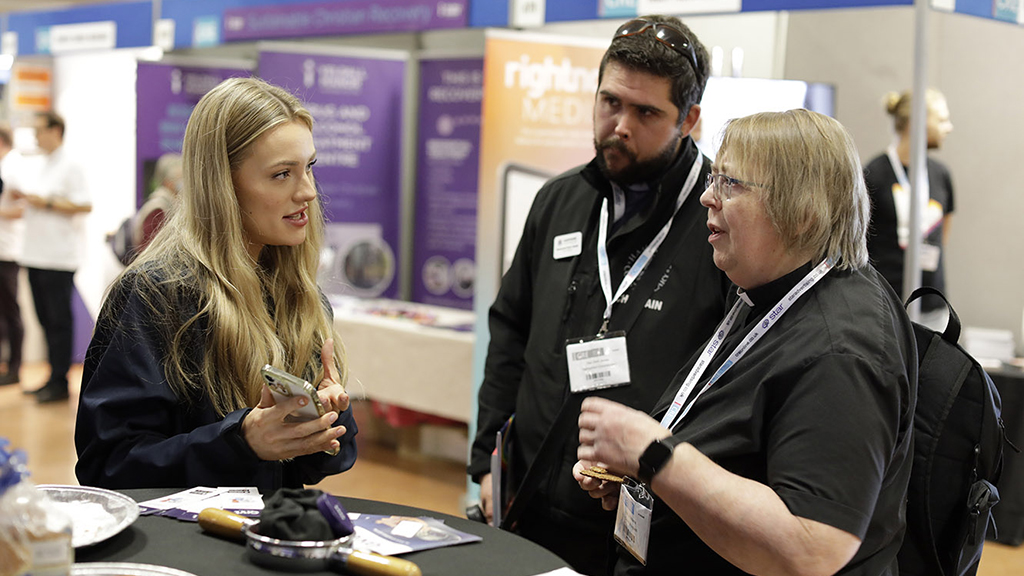Giving in pandemic remains ‘resilient and cheerful’
In spite of COVID-19, the ongoing effects of the UK’s withdrawal from the European Union and, more recently, the ethics of direct debits altered by energy companies hit by financial squeeze, charitable giving to churches is alive and well.
That was a key message from speakers and exhibitors at CRE National 2021 (Oct 12-14).
‘We’re here to talk about generosity,’ said Grant Forrest, chief executive of the Parish Giving Scheme (PGS). Forrest spoke animatedly about what he describes as the emergence of Generation G – ‘not defined by age or other strict demographic, but by a desire, a willingness to give. And not just to give but to give generously,’ he emphasised. ‘It’s perhaps a difficult time to be talking about giving, but nevertheless what we’re seeing first-hand is evidence of increasing generosity. And that is about the link between the giver and the receiver.’
PGS, with its values of community, relationship and generosity is designed to be an extension of each local parish church treasurer’s team, to ease the process of giving and ‘be the catalyst for Christian philanthropy.’

Reacting to the pandemic, PGS introduced a phone line to augment the online and paper-based means of facilitating regular giving. The telephone operators have proved valuable in providing pastoral support to donors during a time of great uncertainty. Via this channel alone, from its introduction in April 2020 to date, more than 4,500 new direct debit mandates have been initiated, grossing in excess of £300,000 per month.
In Anglican churches supported by PGS, charitable giving has remained resilient throughout the coronavirus pandemic.
‘It’s important to us that direct debits are seen to be used as a safe, ethical way,’ added Forrest. ‘But it’s also about reframing the “ask” of the donor and communicating needs cogently, regular giving and speaking more openly about generosity is the backbone…. a gamechanger’. In a Q&A, Revd Dan Henderson, vicar of St Andrew’s Church, Hove concurred: ‘You could see the change [in his congregation] between giving being a “chore” and something we “had to do” to becoming a joy.’
Alternative means of engaging donors were also explored in the CRE workshop led by David Lynch and Alice O’Brien from the UK arm of Dutch tech firm Givt.

‘In the Christian community,’ said Lynch, ‘giving is considered to be an act of worship. But with the challenge of hybrid church – where congregations may not be meeting physically together, or where antiviral practices require a rethink of major touchpoints – we have children today who don’t see the act of giving’. Donating may still be occurring via BACS transfer or card payment, but when unseen, the ‘trigger’ to give may not be as tangible.
Givt is therefore deploying technology to recreate the physical deed of giving. An app-based solution using a combination of Bluetooth-enabled ‘beacons’ in traditional collection plates and QR codes which can be displayed or projected in places of worship, Givt is a flexible and easy-to-use tool that does not even require the donor to have internet access at the point of giving.
‘What we find,’ said O’Brien, ‘is that as the options to give increase, so too does the generosity of the donor. Givt is here to compliment other forms of giving, and we want to be part of the conversation about how and when people are minded to give.’ And it seems to be working. In 2020, Givt report that just under two-thirds of 18-25s gave through a mobile app.
Forrest concluded: ‘While the buildings may have been closed, it’s been about the missional impact of generous giving in parish churches. That’s allied with the ongoing need for financial resilience. And all with a heartfelt desire to continue the work of transformational ministry and its practical impact in local communities right around the country.’
Dave Hall author
Top stories
Christian Resources Exhibitions
Quartz House
20 Clarendon Rd
Redhill
RH1 1QX
United Kingdom
Christian Resources Exhibition is a limited company Reg No. 02549188

About the author